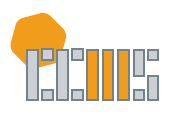Abstract / Synopsis
From Aristotle’s Poetics, literature and logic have been companions in approaching the hypothetical realm of the ‘what if.’ In this paper, I focus on the combinatorial possibilities of logic to see how mathematics becomes an important tool for the Modernist text’s aesthetic appeal to anti-representational and self-enclosed systemic autonomy. Is mathematical discourse autonomous vis-à-vis external reality? Can literary Modernism achieve textual autonomy that goes against realistic verisimilitude by following mathematical discourse? Though literary texts often negotiate formal systems with sophisticated governing logics, can literature itself become a logico-mathematical system? I trace the dialectic of form and system in the short stories of Italo Calvino, known for his interest in mathematical discourse as an Oulipian ‘proceduralist.’ Calvino weaves this dialectic around political concerns like the machinic logic of modernity and technocratic capitalism. ‘Numbers in the Dark’ mythicizes mathematical error that goes against systemicity and leads to an opposition between logic and calculative rationality. In ‘The Burning of the Abominable House,’ computer becomes a narrative device to play with permutations and combinations of the real that conspire against the construction of a single reality. Evoking Oulipo’s position against chance, I bring in Quentin Meillassoux’s readings of Cantorian ‘transfinite’ to distinguish chance from radical contingency. As we shall see, this distinction speaks to the mathematical tension between system and form in the Modernist literary text.
DOI
10.5642/jhummath.202001.13
Recommended Citation
Arka Chattopadhyay, "Mathematical Possibilities in Modernism: Can Literature be a System?," Journal of Humanistic Mathematics, Volume 10 Issue 1 (January 2020), pages 295-316. DOI: 10.5642/jhummath.202001.13. Available at: https://scholarship.claremont.edu/jhm/vol10/iss1/13
